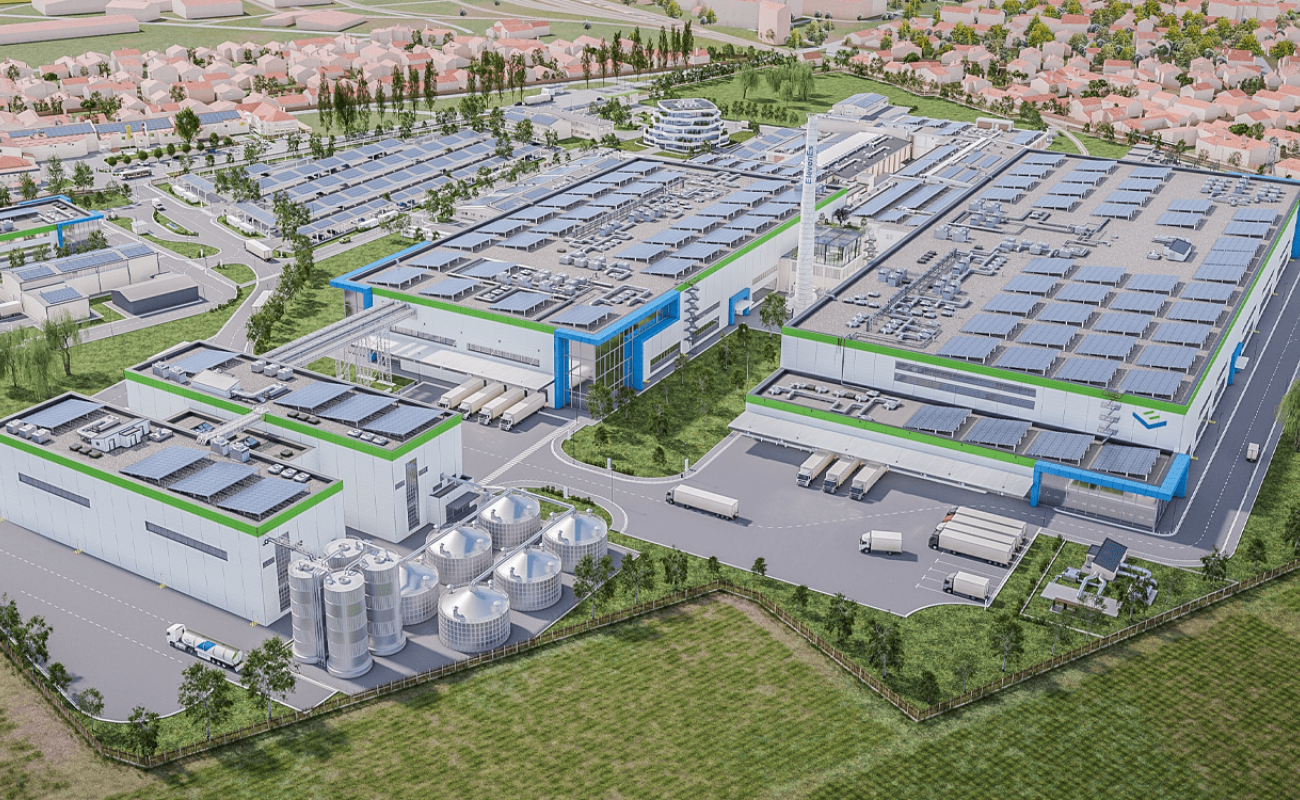Europe’s first LFP battery factory to be built in Serbia
ElevenEs has developed its own lithium iron phosphate (LFP) technology for batteries for electric cars, buses, trucks, forklifts, other industrial vehicles and energy storage systems. Backed by EU funds, it will build Europe’s first factory of the kind in Subotica, Serbia, aiming to reach a capacity of 16 GWh per year.

By 2030, Europe will need 14 times more batteries than it produces today. The demand is driven by growth in electric mobility and the energy storage market, which requires batteries to stabilize energy systems, especially given the growing share of renewable energy.
Lithium-iron-phosphate (LFP) batteries, which combine the advantages of long life, affordability and safety, are gaining an increasingly stronger position in the rapidly growing battery market. They do not contain cobalt, nickel, and other hard-to-obtain materials.
ElevenEs, an industrial spin-off of the multinational Al Pack Group, which specializes in aluminum processing and has been operating on the packaging market for 25 years, has developed its own technology to produce LFP batteries that are more sustainable and efficient. The company, which has been conducting research and development into LFP lithium-ion batteries since October 2019, recently opened an R&D center in Subotica, Serbia, where it employs an international team of engineers and scientists.
ElevenEs recently opened an R&D center in Subotica
“LFP cells last more than twice as long as competing chemistries, they can be recharged up to 6,000 times, charge faster, can be repeatedly charged to 100% state-of-charge and cause practically no fires in EVs. On top of that, they cost significantly less. It is the most popular choice in China today, which is still the global leader in battery technology,” says Nemanja Mikać, founder and CEO of ElevenEs.
Strategic partnership for gigafactory
ElevenEs has just signed agreements with EIT InnoEnergy, which Pitchbook ranks as the most active sustainable energy investor globally, known for being the first investor in other successful battery gigafactory ventures, such as Swedish Northvolt (recently closed a USD 2.75 billion financing round) and French Verkor, which closed a USD 100 million strategic partnership with Renault in July. The two entities announced a strategic partnership to build the first LFP lithium-ion battery gigafactory in Europe.
EIT InnoEnergy is leading the industrial stream of the European Battery Alliance, the European Commission’s initiative to build a strong and competitive European battery industry.
The first phase of production, with a capacity of 300 MWh, should start by 2023
By 2023, the ElevenEs plant will be able to produce LFP cells with a total estimated annual capacity of 300 MWh. The construction of a 100% renewable energy-powered 8 GWh plant in Subotica (Serbia) will start in 2024.
It will later be expanded to a capacity of 16 GWh – enough to equip more than 300,000 electric vehicles (BEVs) with batteries each year. The company revealed it intends to employ up to 2,000 people. Another key advantage is the fact that the facility is also very close to the Jadar valley, the largest deposit of lithium in Europe.
ElevenEs utilized its parent group Al Pack’s technology
“LFP batteries are the next big thing on the battery landscape. Although nickel-based batteries outperform LFP on energy density and are likely to remain the best option for performance cars, LFP is far better in terms of cost, safety and lifetime, making it a perfect choice for industrial, ESS and city EV (shorter range) applications,” says Jakub Miler, CEO at EIT InnoEnergy Central Europe.
“We have been working with ElevenEs for the past year and a half, and what came as the biggest surprise to us is that as much as 70% of the aluminum packaging process and know-how coming from their mother company, Al Pack Group, can be easily transferred to cell production. Having now developed their own LPF technology, that industrial experience of the Al Pack Group should allow them to progress much faster than any of their peers. And we are very excited to be taking that journey together.”
Al Pack Group uses processes similar to electrode manufacturing, which is key in battery production, the announcement adds.
